PhD Position in Dynamic and Smart adaptation of a Cloud2IoT service infrastructure -
Apply before: 2023-08-31
About the role
Your mission consists in a Ph.D. thesis work on the “Dynamic and Smart adaptation of a Cloud2IoT service infrastructure”.
Global context and problem
The continuum from IoT and Edge to Cloud challenges connected objects remote management solutions (Device Management, DM) in every field, e.g., Smart Home or Smart Industry, with new problems of heterogeneity, scalability, and dependencies between devices and services.
New automated and smart approaches are required to meet Quality of Service (QoS) maintenance requirements: when a degradation is detected, the solution should be able to adapt and reconfigure the Cloud-Edge-IoT continuum, without introducing additional QoS deteriorations. [1]
On one hand, popular tools address this reconfiguration for the management of Cloud applications, e.g., Kubernetes and Ansible. However, their software architectures rely on centralisation, constant device availability and reachability, with high computation needs, which make them incompatible with the IoT. On the other hand, standards like Oasis TOSCA aim to formalize the management and orchestration of these processes, but suffer from performance limitations that are key in any IoT context, such as operations parallelism [2].
Scientific objective – results and obstacles
The main objective of the thesis is to extend the DM ecosystem with a proposal for a dynamic device fleet reconfiguration solution suited for the IoT context.
The main scientific obstacles reside in : - The definition of dynamic and decentralized reconfiguration processes, along with their performance indicators (elapsed time, power consumption…) - The guarantee of operations resilience, simultaneously maintaining the targeted QoS level.
These two aspects may involve Artificial Intelligence concepts and tools, with, for instance, digital twins and/or ontologies to enable inference, or federative and reinforcement learning to improve reconfiguration procedures.
The main expected results are : - A semantic model of the “IoT-compliant reconfiguration” domain, including the concepts of performance and resilience - The development of the necessary extensions for the Orange Research IoT DM platform - A demonstrator for the proposals using an IoT environment to be determined, with a preference for an actual Orange IoT environment.
References
[1] N. Ayeb, E. Rutten, S. Bolle, T. Coupaye, et M. Douet, « Coordinated autonomic loops for target identification, load and error-aware Device Management for the IoT », in FedCSIS 2020, doi: 10.15439/2020F154.
[2]M. Chardet, H. Coullon, et S. Robillard, « Toward Safe and Efficient Reconfiguration with Concerto », Science of Computer Programming, vol. 203, doi: 10.1016/j.scico.2020.102582.
About you
Skills (scientific and technical) and qualities required by the position
- You are interested in applied research, DevOps, and the field of the Internet of Things.
- You are experienced in Object Oriented Programming.
- You have scientific and technical skills in the field of distributed systems and/or complex system modelling.
- You are interested in Artificial Intelligence.
- You are motivated, dynamic and a self-starter worker.
- You like working in a team.
- You are fluent in French and English (written, spoken).
- Required training
- You have a master’s degree or Engineering degree in computer science.
Desired experience
- Involvement in traineeships/projects in industry.
- High proficiency in programming.
- Ability to learn and adapt to new technologies.
Contact:
- Hélène Coullon, IMT Atlantique & Inria équipe Stack, helene.coullon@imt-atlantique.fr
Team: Stack



